At last it seems that the New Zealand mainstream media have begun to cotton on to the obvious judicial inequities that are currently coming out of New Zealand’s Courts, where despite sports people being the perpetrators of crime they are simply getting off with little or no accountability. The New Zealand Herald’s Kurt Bayer has written a piece, published in the Herald this morning on a young Dunedin Rugby player, Riley McDowall, who yesterday managed to escape conviction for one of the most serious of offences, a problematic form of violent offending that is on the rise and one in which jurisdictions other than New Zealand are taking the very opposite stance.
Bayer’s piece is however strange in one respect, his claim in the opening paragraph; “a promising young rugby player who avoided a criminal conviction after breaking a man’s jaw in a street attack has again raised concerns that sportspeople in New Zealand have a “get-out-of-jail-free card”
For the life of us we have searched New Zealand’s mainstream media looking for examples of those who have spoken out, as noted by Kurt Bayer, complaining that sports people are receiving a “get out of jail free” card, and we have not yet managed to find one single instance of that having ever occurred.
Why would it have? At least within New Zealand. The fact is that in most cases these people have obtained super-injunctions preventing not only their names being published but also any other aspect of their lives that might lead to them being identified. So Where are all these concerned people who Bayer claims exist?
Lauda Finem perhaps? Are we the lone voice? Or perhaps it’s fellow Australian, journo Derryn Hinch? Given that we are the only media outlet that has in fact repeatedly pointed out the numerous connections between New Zealand sport, Rugby union in particular, and the various lenient sentences or complete acquittals, often with a whole suite of suppression orders thrown in to prevent it becoming public knowledge, then its likely LF that Bayer’s is referring to, without naming us of course.
Bayer, whilst doing the right thing in pointing out the problem, has done little to expose the seriousness of the practice, He can’t of course because the extremely serious cases all have those nasty inequitable suppression orders attached, preventing Bayer using them as an example of just how serious and prolific the problem is. Then of course Bayer’s would be extremely cognizant of the gang of rugby playing police thugs just waiting to pounce on any Kiwi journo who breached those suppression orders, again LF has no such concerns.
Bayer even avoids acknowledging that at the time of the assault McDowell was a student at Otago Boys High School, Why? Because that would have of course raised more than a few eyebrows given the murder of Stephen Dudley on the rugby fields of Kelston Boys High School little more than a year prior; Rugby: Otago Boys’ shows size does matter. Yes size dies matter especially when you’re intending to beat the life out of someone.
In fact even if we were to be based in New Zealand LF feels that it would certainly be worth challenging the suppression orders in court, a move which again the Kiwi mainstream media has been reluctant to make, obviously with one eye on their readers love of sport and the potential of an advertisers backlash – no matter the reasoning, again their hypocrisy is astounding. Bayer opines;
Otago jawbreaker rugby rep avoids conviction
5:00 AM Thursday Dec 11, 2014
By Kurt Bayer
The case of a promising young rugby player who avoided a criminal conviction after breaking a man’s jaw in a street attack has again raised concerns that sportspeople in New Zealand have a “get-out-of-jail-free card”.
Rising rep rugby star Riley Tane McDowall, 19, was walking down a Dunedin street in the early hours of May 11 this year extolling the successes of his rugby club when the assault occurred.
The victim, according to police, made disparaging remarks about McDowall’s Taieri Rugby Football Club, which boasts former All Blacks Arran Pene and John Timu as old boys. Otago under-19 player McDowall was angered and punched the man in his mouth.
The victim suffered a fractured jaw, cuts, and lost a tooth.
At Dunedin District Court this week, Judge Kevin Phillips said a conviction would end any possibility of a professional rugby career for amateur colts player McDowall.
Instead, he granted a discharge without conviction and ordered him to pay $3000 in emotional harm reparation.Judge Phillips reminded McDowall that alcohol was known to have ruined the careers of international cricketers and rugby players.
Commenting on the case, University of Auckland law professor Dr Bill Hodge was impressed by defence counsel David Robinson’s “pretty brilliant” advice.
Ahead of sentencing, a remorseful McDowall had sworn off the booze, completed 100 hours of voluntary community work and offered to pay reparation to his victim.
But Dr Hodge warned that there should not be separate laws for sportspeople. “If this was an apprentice welder or potential builder, I would hope the judge would’ve gone about it the same way,” he said.
“There should not be a get-out-of-jail-free card because you’re a present or future potential sportsman.”
Dr Chris Gallavin, dean of law at University of Canterbury, said sportspeople were the “bread and butter for applications to discharge” in NZ.
Judges must weigh up whether the actual penalty would far outweigh the gravity of the case, he said.
“That will always lend itself to people who are in special positions – whether they are sportsmen and women, Maori King’s sons, or people in positions of special responsibility,” Dr Gallavin said.
“Builders or plumbers are unlikely to lose their job or be in a position of never being able to be builders or plumbers ever again over something like this. Whereas with a sportsman or woman a conviction could destroy their career.”
A spokesman at the Dunedin police district prosecutions office yesterday said he would assess whether an appeal would be mounted.
John Freeland, senior president of Taieri Rugby Football Club, where McDowall plays for its premier colts side, said the incident should be a lesson for all young people.
“It doesn’t matter what career or code they follow, if they put themselves in the eyes of the law, they all should face the risk of not being able to travel overseas or follow their professional aspirations,” he said.
“We have a number of talented boys at our club – there’s a number of talented boys around town. I don’t think Riley is an exception by any stretch of the imagination.”
Otago Rugby Football Union general manager Richard Kinley wasn’t in a position to comment about McDowall’s future career. But the fact that McDowall had made the under-19 representative team meant he was “obviously not a bad player”.
– additional reporting Otago Daily TimesNo conviction
• In 2012, an ex-All Black had a conviction of assaulting his son overturned on appeal, with a High Court judge ruling he was at risk of losing employment from speaking engagements overseas.• Last year, Blues player Francis Saili was discharged without conviction for driving while his licence was suspended. Blues coach Sir John Kirwan told the court a criminal record could affect his future selection.
• Polocrosse player Casey Anne Mullany was last year originally granted name suppression and discharged without conviction – after being convicted of drink-driving – on the basis it could impede her ability to compete overseas. The decision was overturned on appeal.
• In June, international freestyle snowboarder Ben James Stewart, 21, escaped conviction for cannabis offences, with a judge saying he hoped he goes on to “realise your potential”.
– NZME.
Source: http://www.nzherald.co.nz/nz/news/article.cfm?c_id=1&objectid=11372289
Bayers choice of commentators also certainly leaves a little to be desired. Why is it that they always wheel out the yank (or is he a Cunnuck?), Auckland University’s biggest gobshite, Bill Hodge? The cunt that does not even look like an academic, unless you shove a few packed bookshelves behind him, let alone having opinions that pass as relevant. Bill as usual seems to be pissing in the pockets of judges, although he really ought to be carefull, the wind is beginning to change and the public are growing tired of hearing Bill Hodges name used to spruick crap on almost every legal argument the journos at the Herald raise, save perhaps the viability of suing women who block public toilets with sanitary pads.
In short it’s about time New Zealand’s media found some other stupid cunt thats willing to give a qaulified legal opinion, but they won’t because Hodge is the only media craving legal cockhead in the country, his opinions being worth as much as his accent and passport are on the streets of Kabul.
The University of Canterbury’s Dr Chris Gallavin on the other hand appears to be new to the game of media commentary. You know how it goes; we’ve got you on speed dial, we telephone you and then you tell us what we think will cover off all bases for a cover-up, oh and it does not need to even sound believable because we will put the title “Dr” before your name and then drop in the name of the University and its location as the icing on the cake.
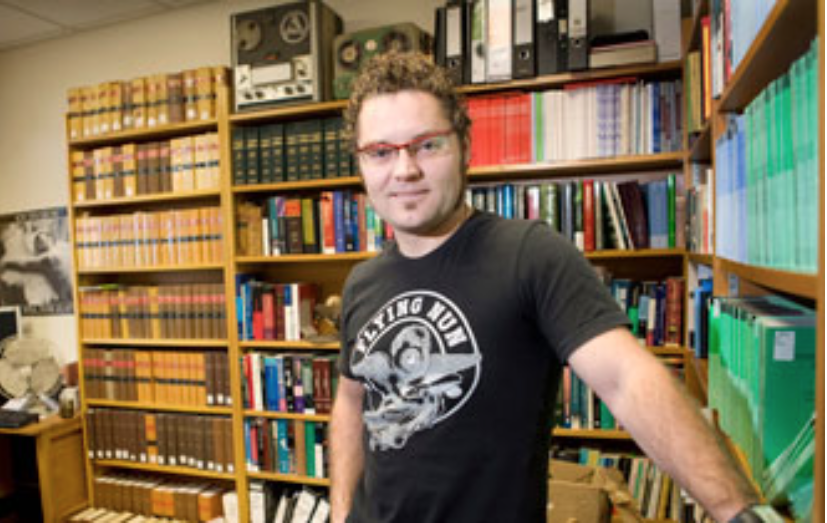
Dean of Law School, Dr Chris Gallavin, voted by team LF as the man most likely to have never actually practiced law.
We are not sure which universe Dr Gallavin lives in but it’s certainly not the same one in which most “builders or plumbers” seem to exist. Oh and Dr Gallavan seemed to have been just a little behind with the latest news when he decided to include the “Moari Kings son” as an example of those with “special responsibilities” likely to escape. Or was it simply a case of the journo, Kurt Bayer, having sought Gallavin’s comments and written his story long before things turned to shit for the princely Maori thug last Friday; “Maori king’s son convicted”
What drugs are these pricks on? Just how divorced from reality have they, as so-called academics, become? Every single academic that the Herald has in the past sought opinion from, Hodges included, always in fact seem to get it wrong, even on some of the most basic cases. Take the Blomfield v Slater case, Hodges looked like a complete fuckwit when the High Court reversed Charles Blackie’s decision, Asher J declaring Slater a journalist, of course Bill Hodge was not alone with that one.
Academics should stay away from the media, Bryce Edwards is another of these “academic” media whore’s who lend their credibility to New Zealand’s two largest shite sheets, he too should take note.
Bayer did not even bother to ask a serious question of either Hodges or Gallavin, you know perhaps something around a few serious legal principles, the likes of “One law for all”. Or how about “open justice” and the absolute need for “transparency” in a modern democracy? Or even the age old concept of “blind justice”, perhaps then seeking an opinion on whether the obvious preferential treatment of “prominent comedians”, “prominent entertainers” “prominent New Zealander’s“, “prominent leaders” and or “promising Rugby player’s“ fits with that high ideal. Are we perhaps expecting to much of poor old Kurt?
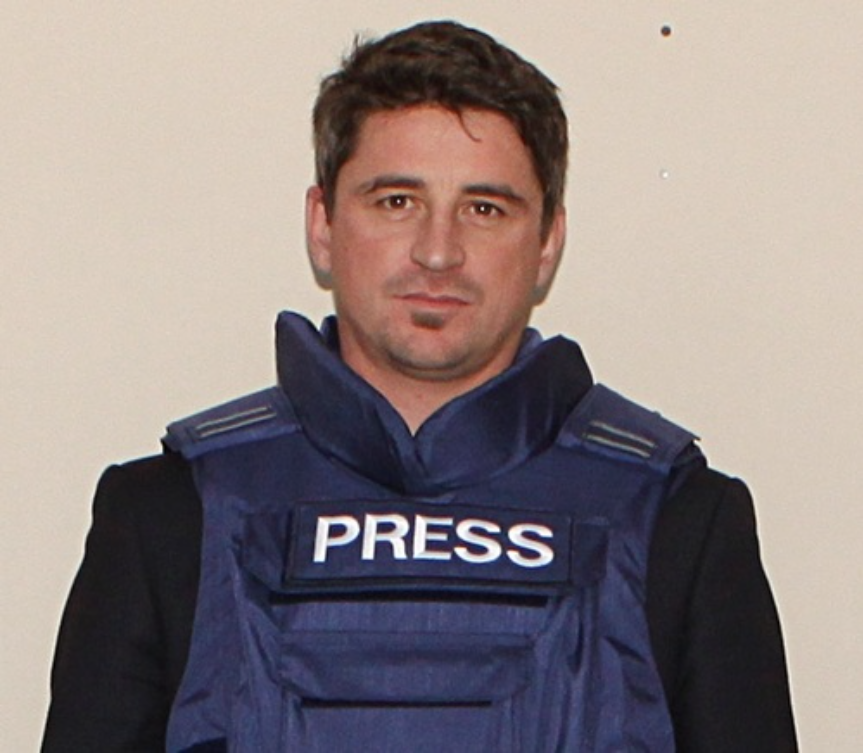
The “Rugby Heaven” clown show; New Zealand Herald journo Kurt Bayer, sporting the stab-proof vest he wears to Kiwi school boy rugby matches
Clearly Bayer does not ask any of those questions because any fool with half a brain already knows the answer. Instead Bayer obviously asked only leading questions that solicited something close to the answers he needed, then with a spot of highly effective editing Bayer gets the scoop:“There should not be a get-out-of-jail-free card because you’re a present or future potential sportsman.” – Bill Hodge, off-setting the attention seeking Billy boys view with “That will always lend itself to people who are in special positions – whether they are sportsmen and women, Maori King’s sons, or people in positions of special responsibility,” – Dr Gallavin.
Hey-presto, you then have what Bayer obviously considers is a balanced story.
The thing is however, some stories, by the mere nature of the subject do not deserve to be balanced; ever seen a journalist write a balanced story on the holocaust, from Hitler’s perspective perhaps? No? Thats because there is no credible argument available that supports injustice or pure evil. The fact is that any deliberate injustice or premeditated abuse of any judicial process or justice system is just that. Pure. Unadulterated. Fucking. EVIL!
LF went looking for any other news items published that might just have covered this so-called “One Punch” assault, the arrest and charging of McDowell, but as you might have already guessed, not one single article was to be found.
There was plenty of rugby based crap to be had, but absolutely nothing covering McDowell’s arrest, charging and or in fact the pre trial plea. Why is that? Just two stories then covered the verdict and sentencing, or rather the lack of sentence; McDowell now having joined the growing list of rugby players, both past and present, who have all managed to walk away from their criminal offending – scott free.
Yesterdays Otago Daily Time’s coverage of this travesty was just as deplorable, but it did give a little something away, an insight into the extraordinary bias of New Zealand’s media, and the very slippery methods employed by New Zealand’s police force and it’s perverse judicial system;
Conviction would end rugby hopes: Judge
The loss of any possibility of a career as a professional rugby player has saved a young Dunedin man from a conviction for an assault that broke another man’s jaw.
Riley Tane McDowall (19) earlier admitted injuring the victim with reckless disregard for his safety.
He was before the Dunedin District Court for sentence yesterday.
The incident happened when McDowall was in the central city celebrating his rugby team’s success and the victim made some disparaging remarks. The defendant’s response was to punch the other man full in the mouth, knocking out a front tooth, cutting his bottom lip and fracturing his jaw.
Counsel David Robinson said McDowall accepted alcohol was the root cause of the offending and had moderated his drinking. Since it was made a bail condition, he had not used any alcohol.
He was remorseful, had completed 100 hours’ voluntary community work and wished to pay emotional harm reparation to the victim.
McDowall had learned “a very hard lesson” about alcohol, Mr Robinson said.
Judge Phillips reminded the defendant alcohol had ruined the careers of international cricketers and rugby players. And he advised McDowall not to drink alcohol at all if he was going to react as he did on the night.
But the judge accepted the consequences of such a conviction for the defendant would be “major” and would end any hopes of him becoming successful or trying to achieve success in his chosen field. While accepting it had been a one punch situation, he said the serious injury caused by the blow to the head was an aggravating factor.
But the consequences of such a conviction would be out of proportion to McDowall’s overall culpability, Judge Phillips said, granting a discharge without conviction and ordering payment of $3000 emotional harm reparation.
Source: http://www.odt.co.nz/news/dunedin/326716/conviction-would-end-rugby-hopes-judge
Now lets take a look at the reaction that has occurred specifically to this type of “one punch” violence, that the half-wit judge refers to, in New Zealand’s closest neighbouring jurisdiction, Australia;
One punch assault laws pass Parliament
30th January 2014
A mandatory minimum eight year jail sentence for so-called one punch assaults will be in force from 1st February after Parliament today passed new laws to combat drug and alcohol-fuelled violence, NSW Premier Barry O’Farrell said today.
“The consequences couldn’t be clearer for any thug heading out this weekend,” Mr O’Farrell said.
“If you are intoxicated with drugs or alcohol and fatally assault someone– you will now be captured by a new mandatory minimum sentence of eight years jail, with a maximum sentence of 25 years,” he said.
“The NSW Government has today sent the strongest possible message on behalf of the community – drug and alcohol-fuelled violence won’t be tolerated anywhere in NSW.”
Parliament has also passed legislation to establish the new Sydney CBD Entertainment Precinct which will be subject to 1.30am lockouts, 3am last drinks and other special licence conditions. The provisions will be able to be extended to other high risk precincts around the State.
Other elements of the NSW Government’s package passed today include:
New state-wide 10pm closing time for all bottle shops and liquor stores;
Increasing the maximum sentence to 25 years for the illegal supply and possession of steroids;
Increased fines including for offensive language, offensive behaviour and continued drunk and disorderly behaviour;
New Police powers to conduct drug and alcohol testing where they suspect an offender has committed an alcohol or drug fuelled violent assault;
Extending the existing liquor licence freezes which apply in the Kings Cross and Oxford Street / Darlinghurst precincts across the new Sydney CBD Entertainment Precinct;
Removing voluntary intoxication as a mitigating factor in sentencing; and
Paving the way for the introduction of annual liquor licence fee for all licensed premises in NSW.
“The NSW Government has heard the community’s call for action. We are committed to addressing the continued drug and alcohol-fuelled attacks on our city streets and the increase in violence used in these attacks,” Mr O’Farrell said.Source: http://www.nsw.gov.au/news/one-punch-assault-laws-pass-parliament
Of course the New South Wales government was not alone in moving to create laws designed to dissuade fucked up sports mad piss heads who after a night on the town decide to grab a kabab and clobber an unsuspecting innocent bystander, or better still someone who they, aided by their piss-addled brains, simply didn’t like the look of.
New Zealand, as always, seems to be behind the times on this issue. Worse still it seems to be deliberate, especially when it comes to the country’s “footy stars” or for that matter anyone with half a chance of being included on some crystal ball gazing future selection list for the AllBlacks.
There is also, LF suspects, something far more sinister going on. The Otago Daily Times article, as aforesaid, unwittingly hints at the problem. But first one needs to ask a few questions, even if the only answers you’re likely to get are theoretical. The journalist responsible for the ODT article seems to have deliberately left out the date on which McDowell’s offending actually occurred. He also seems to have been a little absent minded about when it was that McDowell had actually admitted to assaulting his victim. Given these glaringly obvious, LF believes deliberate, omissions one could then be forgiven for asking why?
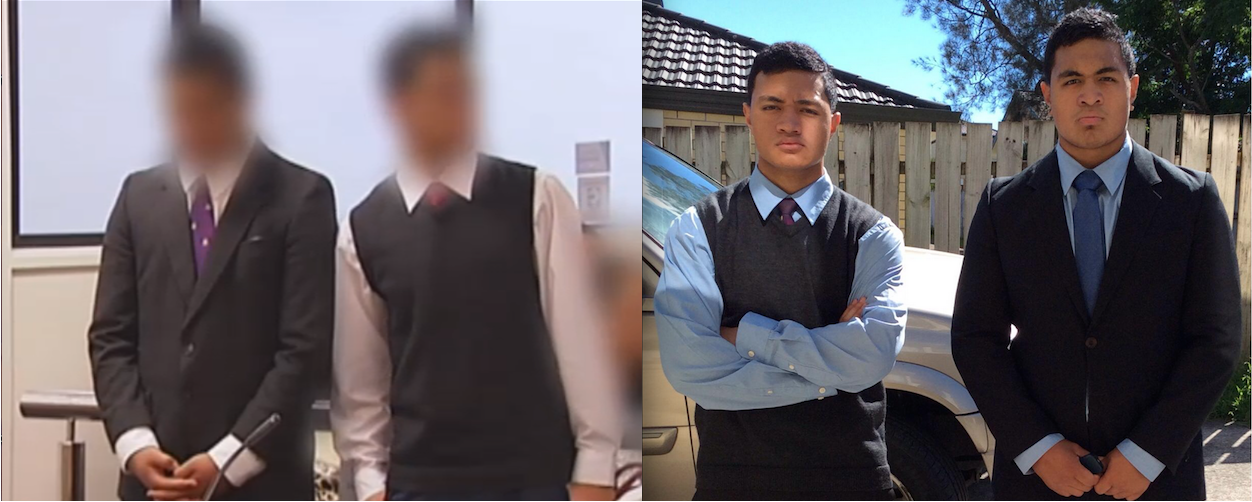
Wannabe All Blacks and thugs or innocent school boys? Stephen Dudley’s attackers, brothers Lone and Ieremia (aka “M”) Mataena
Of course if one were to be a very sharp bookie, perhaps also hardened cynic, then one would very likely give great odds on the answer having something to do with the timing of the trial of two other representative schoolboy rugby players, Kelston Boys High School students and brothers Lone and Ieremia (aka “M”) Mataena for the vicious premeditated assault on victim Stephen Dudley, a so-called assault that we here at LF believe was in fact a “One punch” murder that pro Rugby cops, many of them junior league coaches, then corruptly covered up, the same type of offence that would carry a mandatory eight year custodial prison sentence in New South Wales.
Two dates are important. The 7th August 2014, when the last of those who stood accused of Stephen Dudley’s death were dealt with; “Stephen Dudley’s father erupts at judge in court” Then the 27th August 2014 when the Crown law office announced that it would not be appealing the court’s decision to discharge without conviction; “Stephen Dudley death: Crown decides against appeal”
Now obviously LF cannot yet prove that this scenario is in fact what has occurred, but we would be more than willing to place a real wager on the likelihood that it has; that the police, the Courts and New Zealand’s media have deliberately concealed information from the country’s citizenry that would very likely have led to a rapidly growing public outcry, once the public understood that Rugby had in fact played a more than obvious role in yet another assault and the perpetrator again getting to walk away scott-free; undoubtedly with more seriously embarrassing questions then being asked of the New Zealand police, the crown prosecutors and the jurists responsible for these two mad decisions.
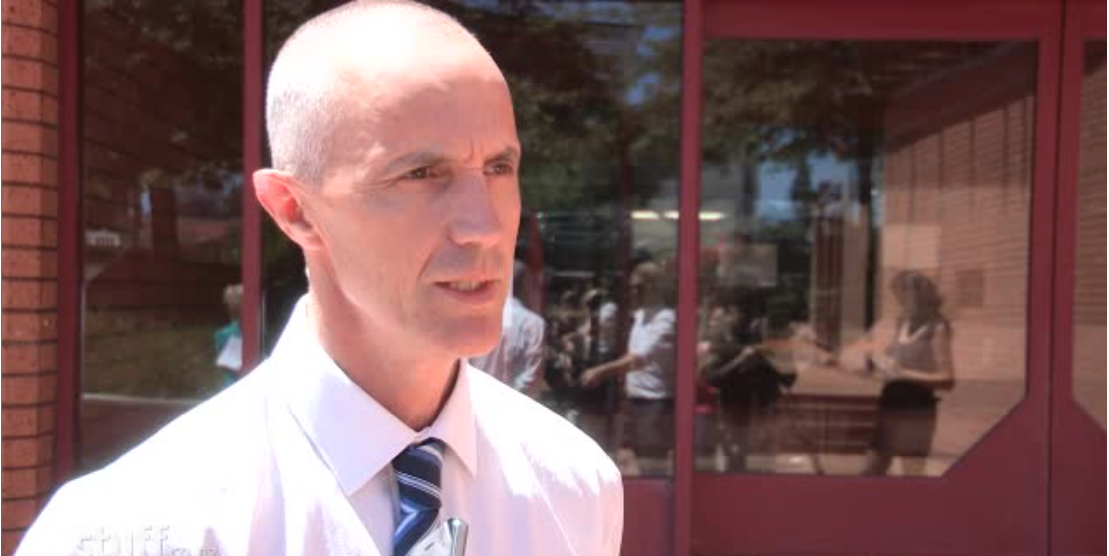
Junior rugby coach extraordinaire and bent cop, Detective Sergeant Peter Litherland, the cop responsible for corrupting the investigation into the 2013 murder of Stephen Dudley at Kelston Boys High School.
Of course LF will now be taking a closer look at the McDowell case just as we are continuing with our investigation into the murder of Stephen Dudley and the police and crown law handling of the evidence, the very dodgy pretrial matters and the completely inexplicable conclusion.
Also strangely absent from the ODT article above, was any reference to how the victim may have felt; perhaps referring to the victim impact report such as, just what effect did this clearly serious assault have on the victim who had his jaw broken (and probably wired), again why is that?
In fact if one is to believe whats recorded in the Otago Daily Times article not even the judge appeared to demonstrate any compassion or concern for the “likely impact” the assault had on McDowell’s victim. Just how it might affect the victims chance of being unemployable in the future. Or even for that matter the possibility of the victim developing Post Traumatic Stress Disorder (PTSD), or any other psychological dysfunction or physical disfigurement that would likely impact his quality of life now or in the future. The fact is that the victim was not even acknowledged in either article, nor was he named; which is another dead giveaway that something fishy was afoot.
Was the judges award of a paltry $3000 ever going to cover the real damage? If you’re one of the idiots inclined to believe that the compensation the Judge awarded was even close to adequate then you’re either brain-dead or suffering from a head injury, very likely sustained during last weeks rugby game.
As for the New Zealand legacy media, well we suspect that in time they too will pay the price for their continued complicity, most probably reflected in a dramatic fall in circulation and share price. After all, that appears to be all they’re really concerned with, there is absolutely no evidence that suggests they are even remotely concerned with the civil and human rights of all New Zealander’s. All said and done, there’s just far too much revenue to be had from supporting Rugby for that to ever change.
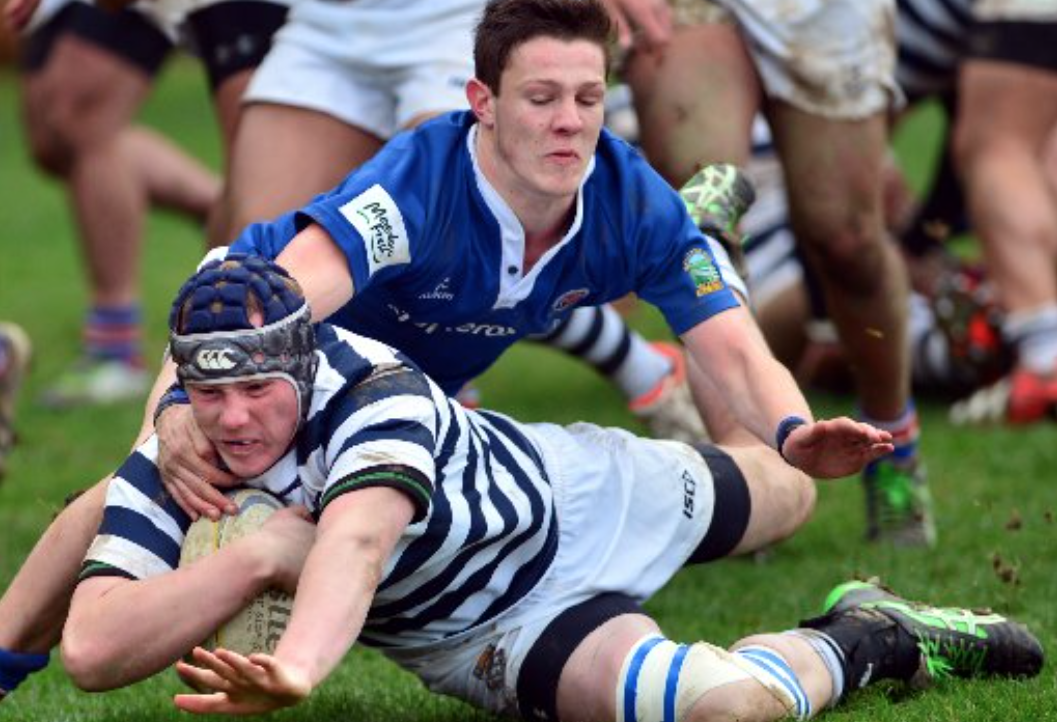
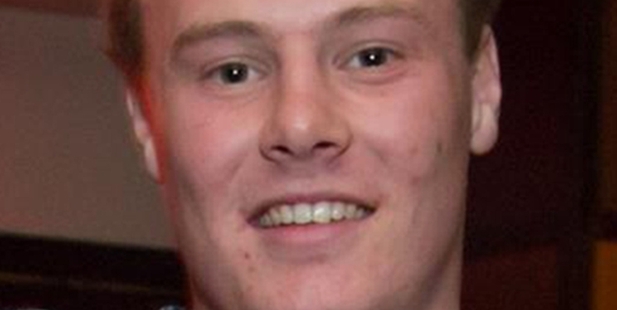
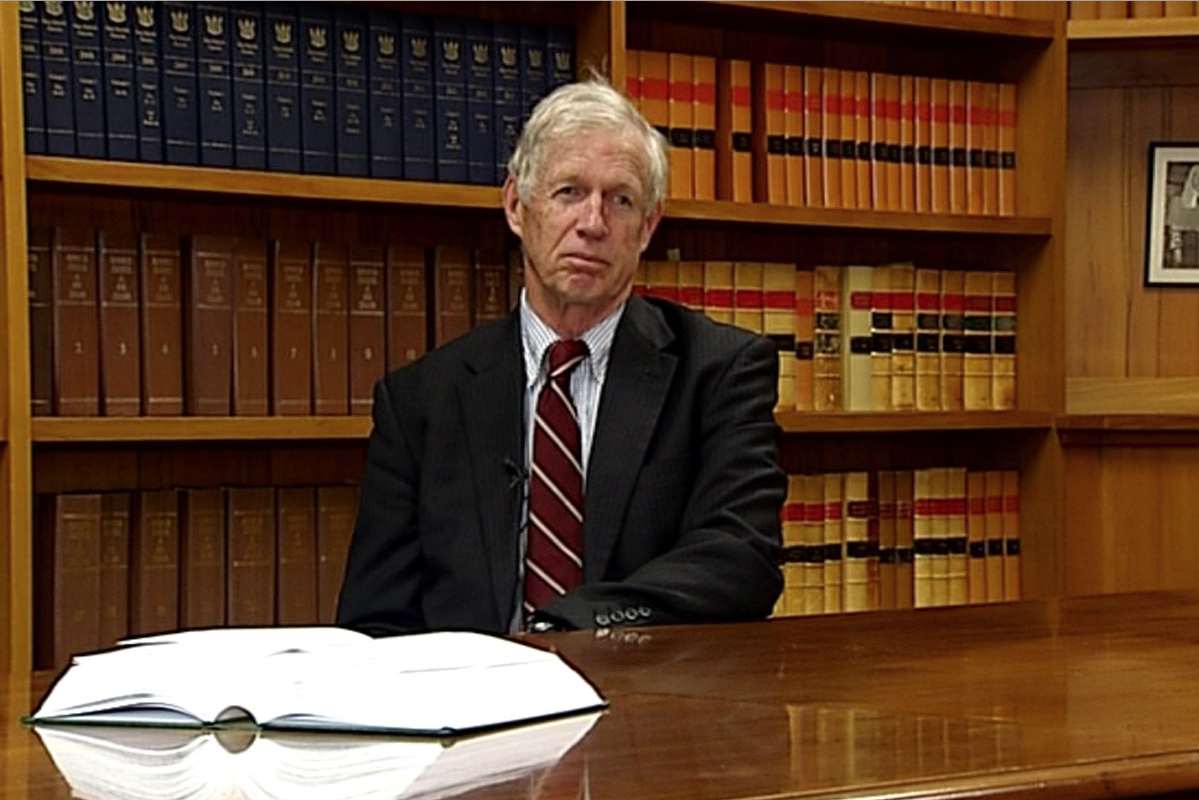
3 Comments
I don’t think it was the Mataena brothers that Dudley died, maybe there was a good reason to why they gave him a hiding, but violence isn’t the answer. GOD BLESS <3
If, in future, McDowell or any of the others discharged without a conviction being recorded had to answer the question “have you ever been convicted of a criminal offence?” then they could truthfully answer “no”. If, however, they were asked the question “have you ever been found guilty of a criminal offence?” they would, if truthful, have to answer “yes”. It appears that one way to circumvent the New Zealand courts’ predilection for protecting the guilty would be to ask properly framed questions on application forms. This of course will never happen because the purpose of a discharge without conviction is to conceal and not to reveal, the truth. Anyone asking for the truth would no doubt be found guilty of attempting to defeat justice. Nice justice system you have there in the land of the long white shroud. “There is nothing concealed that will not be disclosed, or hidden that will not be made known.” Luke 12:2. Thank God for LF.
So when it suits some thief dope smoking Maori called the Maori Kings Son can be revisited by the Courts but not 2 murderers ! Wow just shows many standards with the NZ cops and courts